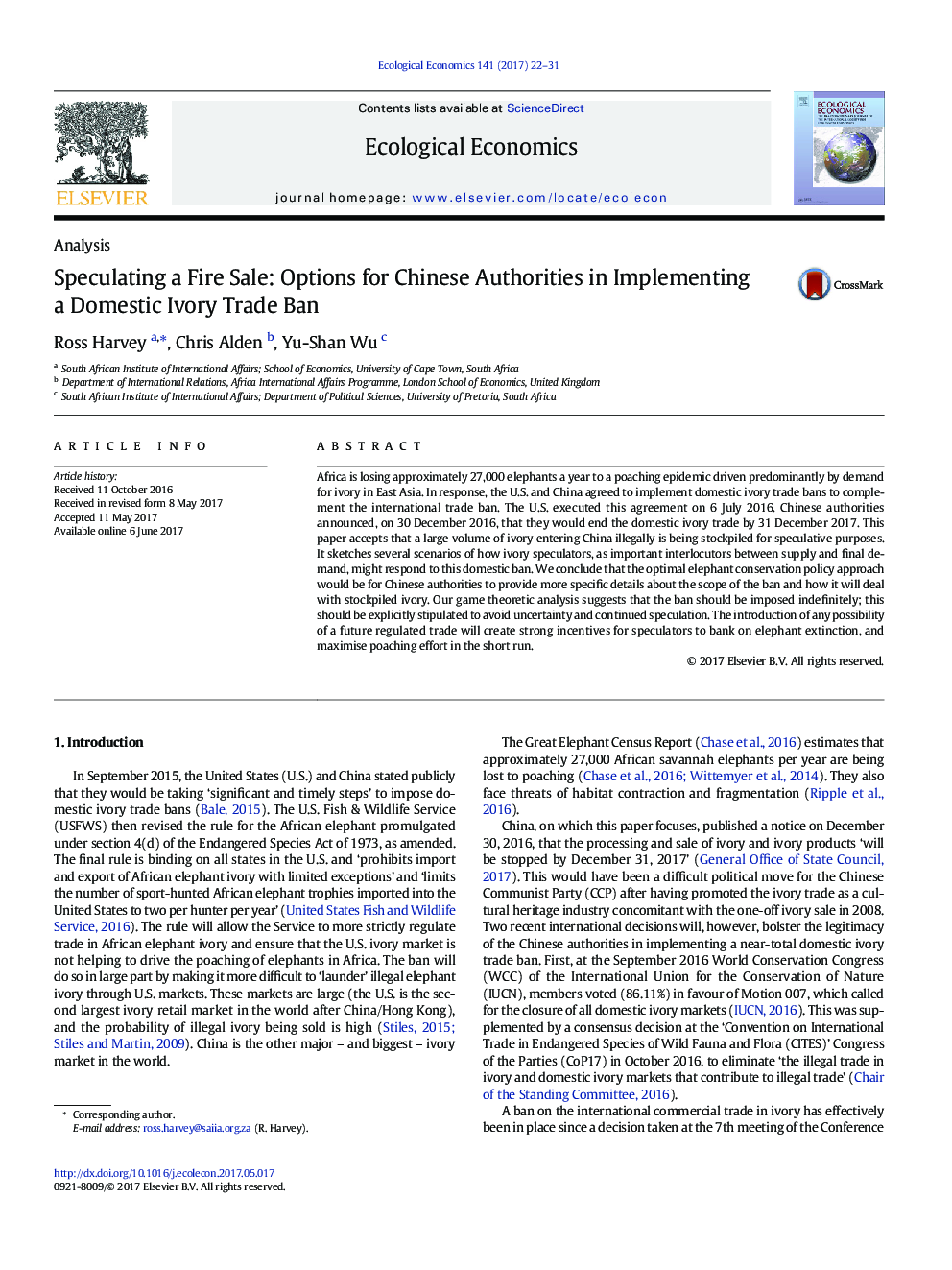| Article ID | Journal | Published Year | Pages | File Type |
|---|---|---|---|---|
| 5048648 | Ecological Economics | 2017 | 10 Pages |
•If ivory speculators in China believe that the domestic ivory trade ban will be finite, they will continue to hoard ivory.•Under a finite ban, speculator syndicates will increase poaching to control stock and earn monopoly rents in the future.•If speculators believe that the ban will be infinite, they will offload stock now (to maximise rents).•Stock sell offs might lead to a fire sale, reducing ivory prices and disincentivising elephant poaching.•The legal trade in mammoth ivory poses a challenge to the efficacy of a domestic ivory ban for reducing elephant poaching.
Africa is losing approximately 27,000 elephants a year to a poaching epidemic driven predominantly by demand for ivory in East Asia. In response, the U.S. and China agreed to implement domestic ivory trade bans to complement the international trade ban. The U.S. executed this agreement on 6 July 2016. Chinese authorities announced, on 30 December 2016, that they would end the domestic ivory trade by 31 December 2017. This paper accepts that a large volume of ivory entering China illegally is being stockpiled for speculative purposes. It sketches several scenarios of how ivory speculators, as important interlocutors between supply and final demand, might respond to this domestic ban. We conclude that the optimal elephant conservation policy approach would be for Chinese authorities to provide more specific details about the scope of the ban and how it will deal with stockpiled ivory. Our game theoretic analysis suggests that the ban should be imposed indefinitely; this should be explicitly stipulated to avoid uncertainty and continued speculation. The introduction of any possibility of a future regulated trade will create strong incentives for speculators to bank on elephant extinction, and maximise poaching effort in the short run.
